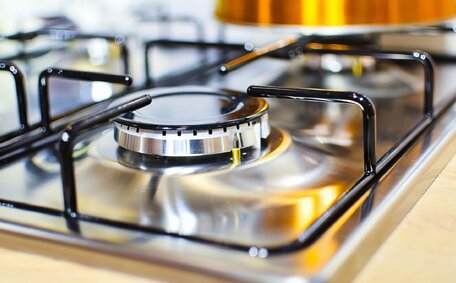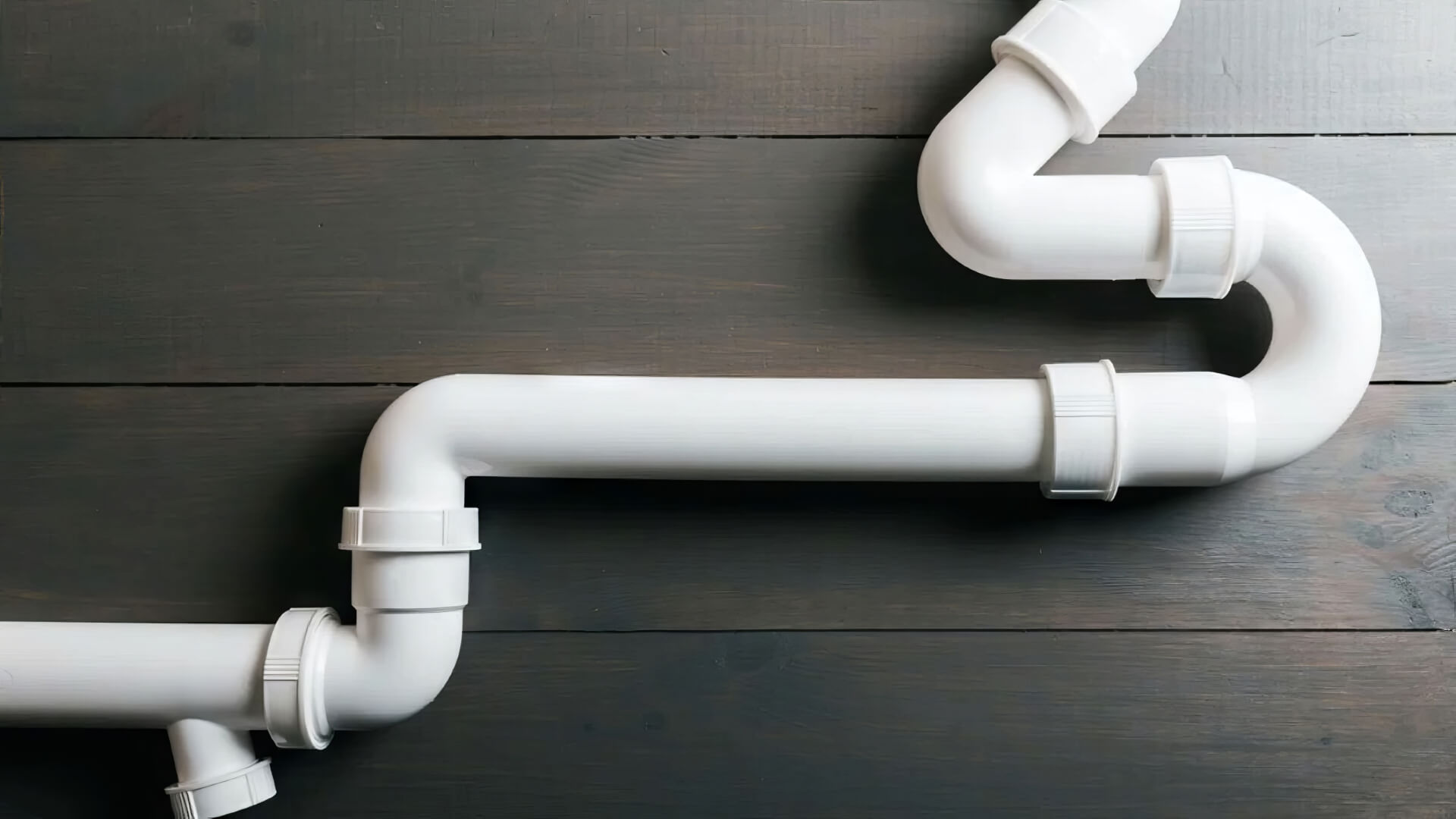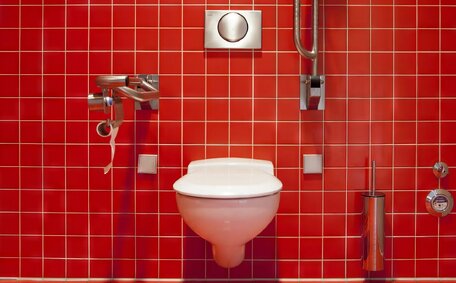Understanding Hot Water Usage in Your Household
To select an appropriate hot water system, understanding your household’s hot water usage is crucial. The size of your household and daily hot water consumption significantly affect your hot water needs.
On average, each person uses about 50 litres of hot water daily, though individual household needs may vary. Therefore, a family of four would require approximately 200 litres of hot water each day. It’s also key to consider when your peak usage times are, such as in the morning when everyone is showering or doing laundry.
Comprehending household size and water use patterns is key to choosing not only an economical, but also an energy-conscious hot water system tailored to your specific needs.
Choosing Between Fuel Types for Your Hot Water System
The variety of water heaters available includes electric, natural gas, solar, and heat pump options.
Electric storage hot water systems tend to have lower upfront costs but can be more expensive to run long-term. They work by heating water in a tank water type storage system using electrical heating elements. Although installation is affordable, the daily operation costs do accumulate.
Natural gas systems involve heating water in a storage tank or on-demand as it flows through with gas burners.
Gas is often favoured for its lower operational costs compared to electricity in heating water. However, gas line installation may be needed which adds initial expenses. Operating costs are manageable over time.
A solar heat system depends on sunlight, harnessed by panels, to pre-heat water prior to entering a storage tank, complemented by electric or gas boosters when necessary. While solar systems come with steeper initial outlays, fiscal support like government rebates can ease the transition to more sustainable gas electric hot water solutions.
Heat pump water heaters utilise refrigeration strategies to harness warmth from the ambient air, providing hot water your household desires. Considered very energy efficient, they can reduce your energy bills by up to 65% depending on your household. However, their initial cost is higher.
When deciding, weigh upfront expenses against long-term savings and efficiencies. Consider available electric gas fuel types and the associated costs in your area for running your system. Consulting a professional plumber can guide you to the hot water system that aligns with your budget and consumption needs.
Electric Hot Water Systems
Electric hot water systems offer affordability and ease of installation, making them a popular choice. Unlike gas systems, no new gas lines need to be run which saves on upfront expenses.
Electric hot water heaters warm water in an insulated storage tank using electric elements. This allows you to have enough hot water ready and waiting for whenever you need it.
These systems with the right hot water system size stand out as superb for small households, particularly where 1-2 bathrooms are common. They are also suitable for locations without natural gas access.
While cheaper to install upfront, electric hot water does cost more to operate long-term. Keeping elements active to maintain water at a constant heat throughout the day, every day piles up to higher energy costs, taking a bigger bite out of your budget than one might expect. New heatpump hot water systems or solar electric booster systems can offset this though through superior energy efficiency.
Electric water heating units are relatively easy to maintain on your own or with a plumber’s help. Overall, Electric systems provide convenient hot water at a low initial cost, but be aware of possible higher running expenses.
Gas Hot Water Systems
Gas Hot water systems can be a great option for many Campbelltown households thanks to their energy efficiency. They work by ensuring your hot water system can heat water with natural gas or LPG burners as it flows through either a storage tank or instant continuous flow unit.
Compared to electric hot water systems, gas systems are generally more efficient, balancing electricity gas usage. This leads to lower running costs that can offset the initial purchase and installation expenses over time. Furthermore, they are notably more energy efficient than electric counterparts, curbing their environmental footprint.
However, to reap these benefits your home must have access to a natural gas supply such as the mains, or install an LPG tank where gas lines don’t reach. Despite higher initial costs, a gas hot water system can lead to significant long-term savings on your energy bills.
Explore the spectrum of type hot water system options, each with varying energy star ratings, storage and instant flow abilities, designed to accommodate an array of household sizes and financial plans. Consult an experienced Campbelltown plumber to ascertain if gas matches the size your abode requires, ensuring efficient and cost-effective heating.
Solar Hot Water Systems
Solar hot water systems are a great energy-efficient option worth considering for Campbelltown homes. They work by using solar panels, normally roof-mounted, to heat water instead of electricity or gas.
Solar panels absorb the sun’s renewable energy, transferring it to water in an insulated storage tank. This pre-heated water can provide a transition from cold to hot and then feeds into your existing plumbing setup ready for use. Most solar systems also have an electric or gas booster to ensure sufficient hot water during extended periods of low sunlight.
Solar hot water systems have higher upfront costs but offer considerable long-term savings due to their energy efficiency.
Their exceptional energy efficiency means you can reduce hot water bills by up to 60%. Government rebates are also often available to help cover the system cost. Just keep in mind you need adequate northern-facing roof space for the panels.
Speak to a qualified Campbelltown solar hot water installer to see if this sustainable system could meet your needs. They can advise which size and setup would best suit your hot water usage needs.
Heat Pump Hot Water Systems
Heat pump hot water systems are growing in favour, offering remarkable efficiency as they heat up your water. They work by extracting heat from outdoor air and using it to warm up water stored inside an insulated tank.
Heat pumps are efficient as they transfer existing warmth instead of directly generating heat. This allows them to produce up to 3 times more energy as heat than the electrical energy they consume.
Their efficiency, as measured by the Coefficient of Performance (COP), varies across models. COPs of over 3 are common meaning for every 1 unit of electricity used, 3 units of heat is gained. The higher the COP, the more efficient the system will be.
Heat pumps stand up to the task all year but shine in warmer climes where hot water systems heat with greater efficacy. As they extract heat from ambient air, colder conditions reduce performance. Systems certified for colder operation are available in climate specific models however.
Installation costs for heat pump systems can be higher than some alternatives. However national and state level incentive programmes are often available to help offset upfront expenses for households installing approved high efficiency heat pump hot water systems.
Comparing Storage Tank vs Continuous Flow Systems
When deciding between a storage tank or a continuous flow (also called ‘tankless’) hot water system, there are some key differences to consider.
Storage systems maintain heated water in an insulated tank until you require it. Tank sizes vary from 50L up to 400L+ to meet different household demands. Recovery rates after use also depend on tank capacity and heating method.
Conversely, storage hot water systems maintain a reserve of water, deviating from the 'on demand’ approach of continuous flow systems. But flow rates are limited per minute, which can impact simultaneous or high demand usage. Running costs are generally cheaper though as you only heat exactly what you use.
Tankless systems’ compact design saves valuable home space.
Consult with a local Campbelltown plumber to determine which system will meet your hot water needs, taking into account usage, family size, budget and all advantages and disadvantages.
Storage Tank Hot Water Systems
Storage tank hot water systems are one of the most common types used in Campbelltown homes. They consist of an insulated tank that holds a set amount of pre-heated water ready for use whenever you need it.
Well-insulated tanks reduce standby heat losses, keeping the water hotter for an extended period. Tank sizes vary from 50L up to 400L+, with bigger units better suited to larger households with a greater number people having higher peak demands.
The lifespan of a storage tank system can range from 5-15 years on average. Choosing the water system size that aligns with your household’s typical daily hot water usage will optimise efficiency and cost savings over time.
Speak to a qualified Campbelltown plumber to determine the right storage tank system, fuel type and capacity to suit your budget, usage, space and long term needs.
Continuous Flow Hot Water Systems
Continuous flow or 'tankless’ hot water systems provide instant hot water without needing a storage tank. Water is heated directly via gas or electric elements as it flows through the unit.
Their compact design, a true energy saver when comes to utility cost, is perfect for Campbelltown homes with little room for sizeable tanks. While flow rates support consistent usage, simultaneous use across multiple bathrooms may strain capacity.
Operating without standby heat losses makes continuous systems very energy efficient. And only heating the water you use means potential savings on energy bills over time compared to storage tank systems. Installation is also relatively low cost.
Just keep in mind that flow rates are limited per minute. Speak to a Campbelltown plumber to advise whether continuous flow can fully meet your household’s hot water requirements.
Factors to Consider When Selecting a Hot Water System
Selecting the optimal water system for your Campbelltown home involves considering a range of critical factors. Consider:
- Household size and daily hot water usage patterns
- Energy efficiency ratings to minimise running costs
- Upfront purchase costs vs long-term savings
- Available fuel type such as electric, gas solar or heat pump
- Tank storage capacity or continuous flow delivery
- Ease of installation and reliability
It’s important to evaluate both short and long term expenses against the efficiency of different types hot water heating systems. An expert Campbelltown plumber can assess your household’s unique requirements and recommend the right system to best meet your hot water needs within your budget.
Energy Efficiency
When selecting a hot water system, energy efficiency is a key factor to consider for cost savings and environmental benefits. Systems are rated on a scale of the most efficient to the least, with 0 to 10 stars for efficiency - the higher the stars, the less energy is wasted heating water.
Electric heat pump and gas condensing systems typically achieve excellent 5-6 star ratings without compromising on comfort and convenience. By extracting ambient heat rather than directly generating it, heat pumps can operate over 3 times more efficiently than conventional water heater your home may currently use.
Solar hot water also utilises free renewable heat from sunlight via roof panels. This can meet 50-60% or more of households’ needs across the year.
Modern gas condensing technology offers similar efficiency to heat pumps.
When comparing systems, calculate long term operating expenses against upfront purchase costs. Often a higher star rated model pays for itself within 5 years while saving thousands in the long run. Consult Campbelltown plumbers to determine the most suitable and efficient system for your home and budget.
Upfront and Ongoing Costs
When choosing a new hot water system, it’s important to consider both the upfront installation and purchase costs as well as the ongoing running expenses.
Upfront costs can vary greatly depending on the type of system, size, brand and complexity of installation required. Storage tanks, continuous flow units, heat pumps and solar hot water all come at different price points. Installation costs also need accounting for.
However, don’t just look at upfront costs alone. The ongoing energy bills to keep your storage water heater operational will accumulate annually. Although more energy-efficient systems may have higher upfront costs, they can lead to substantial savings over time due to lower operational expenses.
Maintenance is another factor, as some systems have higher servicing requirements. Budgeting $100-$250 annually can cover most repair jobs to help avoid unexpected bills.
Carefully weighing up both short and long term costs will lead you to the most cost effective and efficient hot water system for your Campbelltown household’s budget and needs.
Sizing Your Hot Water System
Choosing the correct size in hot water systems is crucial to meeting both your household’s needs and financial considerations. Consider your daily usage, peak demand times, number of occupants and bathrooms. As a guide:
- Small 1-2 person households need about 100L systems
- Families of 3-4 need 160 - 250L storage capacity
- 5 or more occupants consider 300L+ systems
Also factor if you use hot water simultaneously across multiple bathrooms or sinks. Undersized systems can result in cold showers and inadequate flow during high-demand periods. Oversized systems waste money by heating more water than necessary.
Use Rinnai’s online Hot Water Selector for custom Campbelltown system size recommendations. Or talk to a plumber about the ideal storage tank or continuous flow system to suit your home.
Installation and Long-Term Reliability
Professional installation is essential for the long-term reliability and performance of your hot water system. Qualified Campbelltown plumbers will install the unit safely and effectively, helping maximise lifespan while safeguarding your warranty coverage for peace of mind.
The longevity of hot water systems varies across types.
With proper maintenance, electric and gas storage tanks can reliably last for 10-15 years. And heat pumps and solar hot water systems often provide 15-20+ years of service life.
Regardless of the chosen system, ensuring it is correctly sized for your household, professionally installed, and regularly maintained guarantees its reliability for years ahead. This approach ensures an excellent return on investment and helps prevent unexpected repair costs in the future.






